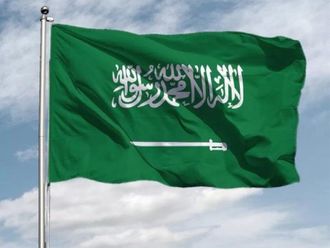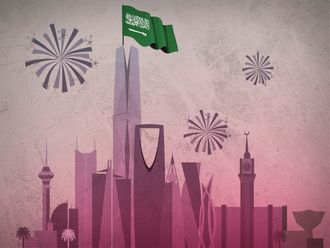Beirut: Notwithstanding frequent UN Security Council calls for a cessation of hostilities, Russia and China, as well as the United States, Britain and France, are not eager to usher in a negotiated settlement in Syria.
Savvy diplomats talked the talk, working hard to end the civil war, though few walked the walk, as every major power attempted to advance its military objectives.
In the aftermath of significant diplomatic failures since 2011, first at the hands of the former UN Secretary-General Kofi Annan and, more recently, under the leadership of Lakhdar Brahimi, efforts to settle the war have lost momentum.
The two joint UN-Arab League envoys confronted formidable opposition although a glimmer of hope appeared last May, when US Secretary of State John Kerry and his Russian counterpart, Sergey Lavrov, called for a peace conference in Geneva. The commitment, dubbed Geneva II, aimed to revive Annan’s moribund Geneva I six-points effort that intended to address the legitimate aspirations and concerns of the Syrian people, stop the fighting, ensure humanitarian assistance, release detainees, guarantee freedom of movement, and respect the right of association.
In the course of their frequent meetings, Kerry and Lavrov worked to devise a political solution, deploy UN peacekeepers and, perhaps, make special arrangements for President Bashar Al Assad to leave office. Few of these details were made public although the Syria National Coalition held several assemblies in Istanbul under the group’s former leader, Shaikh Mu‘ath Al Khatib, which granted Al Assad 20 days to relinquish power and to leave “the country along with five hundred people whom he would select, along with their families and children, to any other country that may choose to host them”.
Syrian Prime Minister Wael Al Halki or Vice-President Farouq Al Shara would, under this scheme, then oversee a 100-day transitional period during which an independent government could be selected.
Geneva II was supposed to convene in June although this was pushed back to August and may not happen at all because of military developments on the ground.
To be sure, Damascus continued to haemorrhage with massive casualties, and the loss of significant territories. Still, with substantial Hezballah troop deployments, Damascus regained momentum in recent weeks even if it was impossible to know whether such gains were permanent. Parallel to his putative successes on the battlefield, President Al Assad embarked on a thorough house cleaning of the Baath Party, which saw 16 new Central Committee members [the only hold-out was Assad himself] ushered in. Buoyed by military gains on the ground, Damascus was gratified of Russian and Iranian support, while opposition groups hoped for similar backing from their allies.
For despite oft-repeated Western decisions to provide effective weapons to moderate opposition groups, little of those were actually delivered, which explained recent setbacks. Except for Qatari and Saudi anti-tank weapons, which made an impact, the overall dynamics of the war was not poised to change until anti-aircraft guns were transferred to silence the Syrian air force.
The fear that such advanced systems would fall into the wrong hands explained Western recalcitrance. In the event, vicious internecine fighting between secular and Islamist factions among revolutionary forces clearly helped Damascus consolidate its power, though atrocities committed against civilians were not the exclusive purview of either side.
Ironically, Damascus intensified its operations after the announcement of the Geneva II summit, with Russia conveying its “nyet” to any outcome that would see Al Assad accept an agreement that would require him to leave office. For now, Washington, London and Paris opted for much more limited alternatives that, without exaggeration, will see negotiations drag out. Inasmuch as opposition forces lost some ground, and because Moscow and Tehran still held on to Al Assad, fighters preferred to wait until they gained the upper hand.
The breakdown of the diplomatic engagement over Syria was blatantly evident, although leading powers emphasised the UN option, if for no other reason than to preserve what remained of the post-Cold War international cooperation aura. It remained to be determined whether Damascus, or Syrian opposition forces for that matter, were willing to be distracted by limited offers, humanitarian assistance, or negotiations in Geneva.












